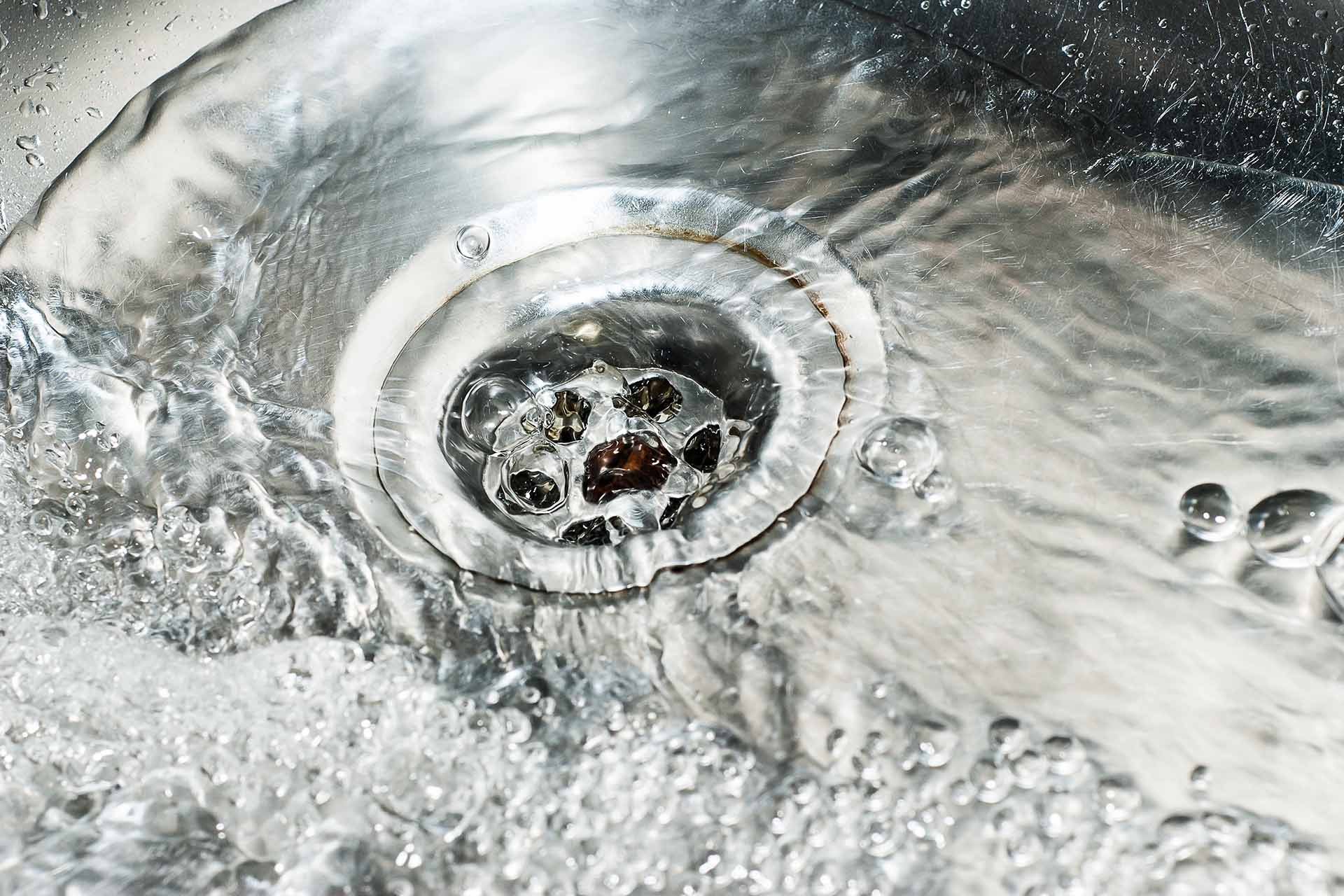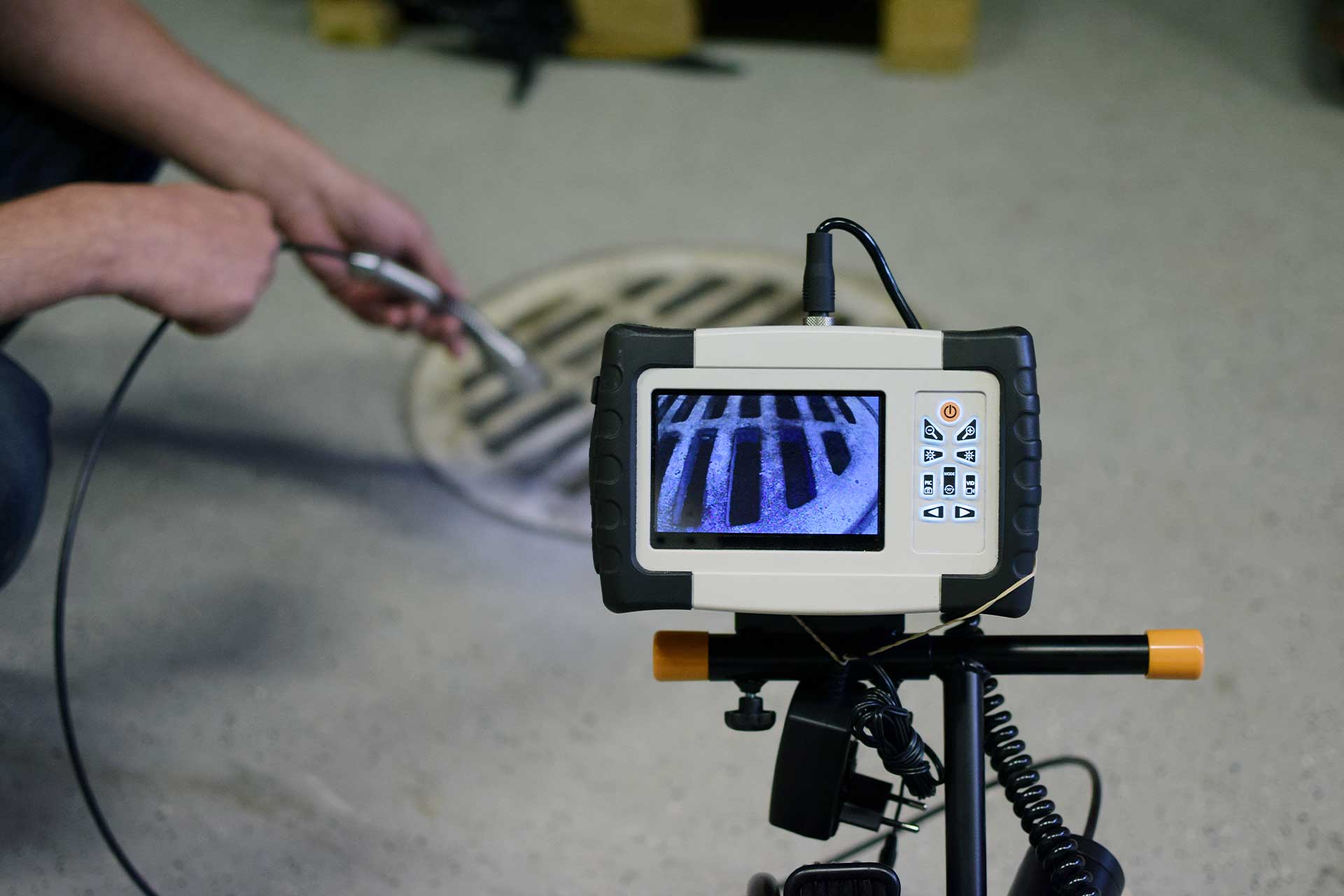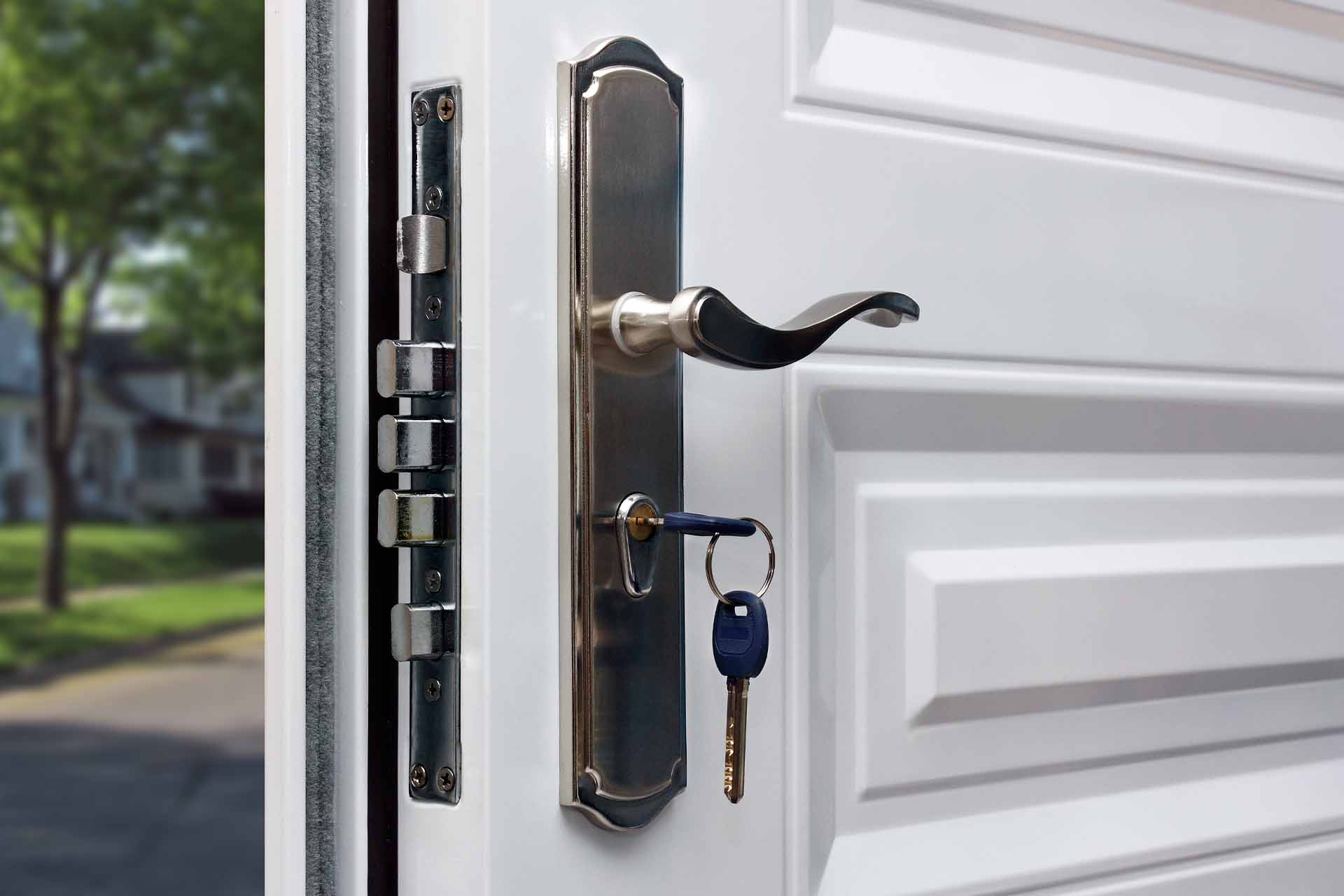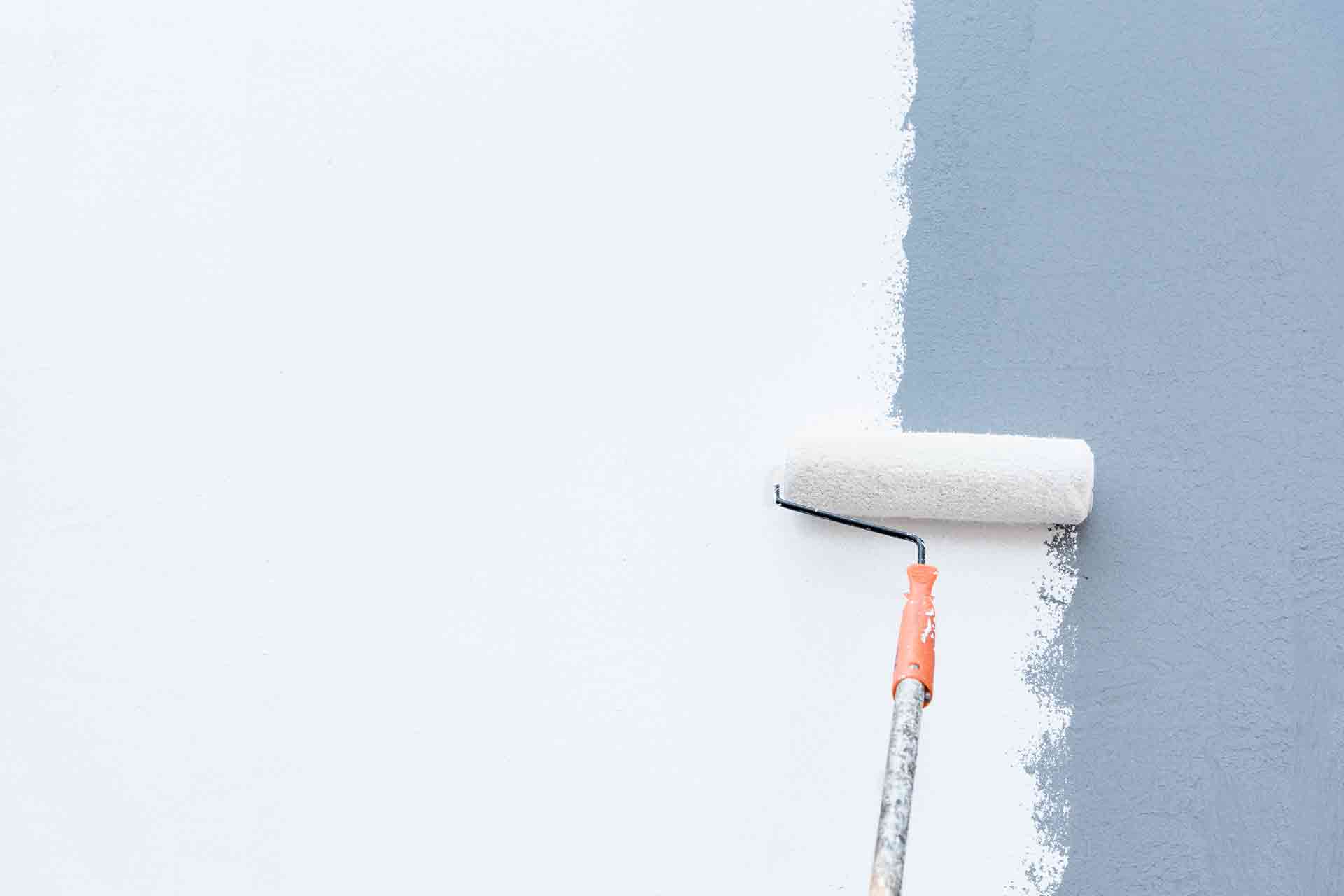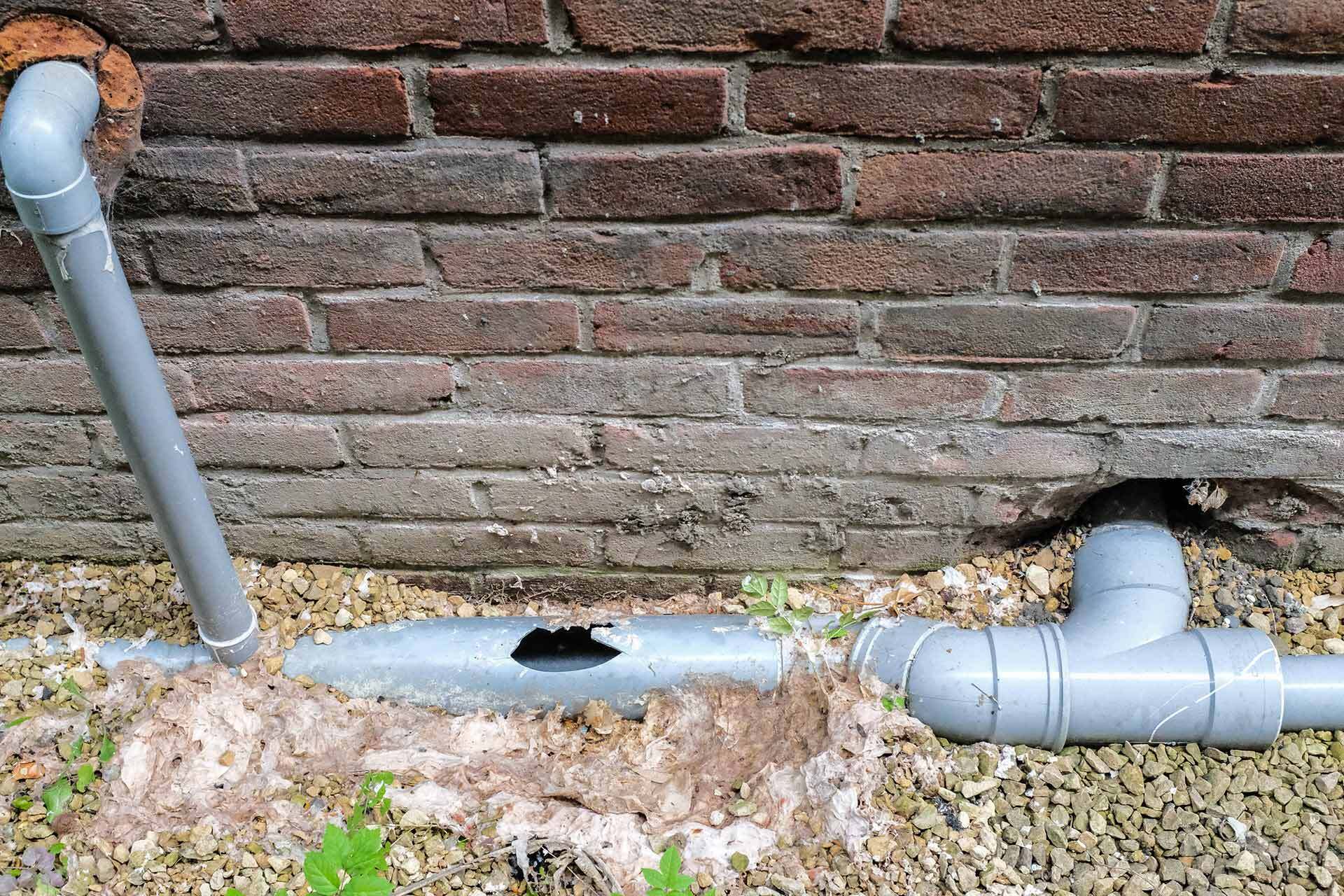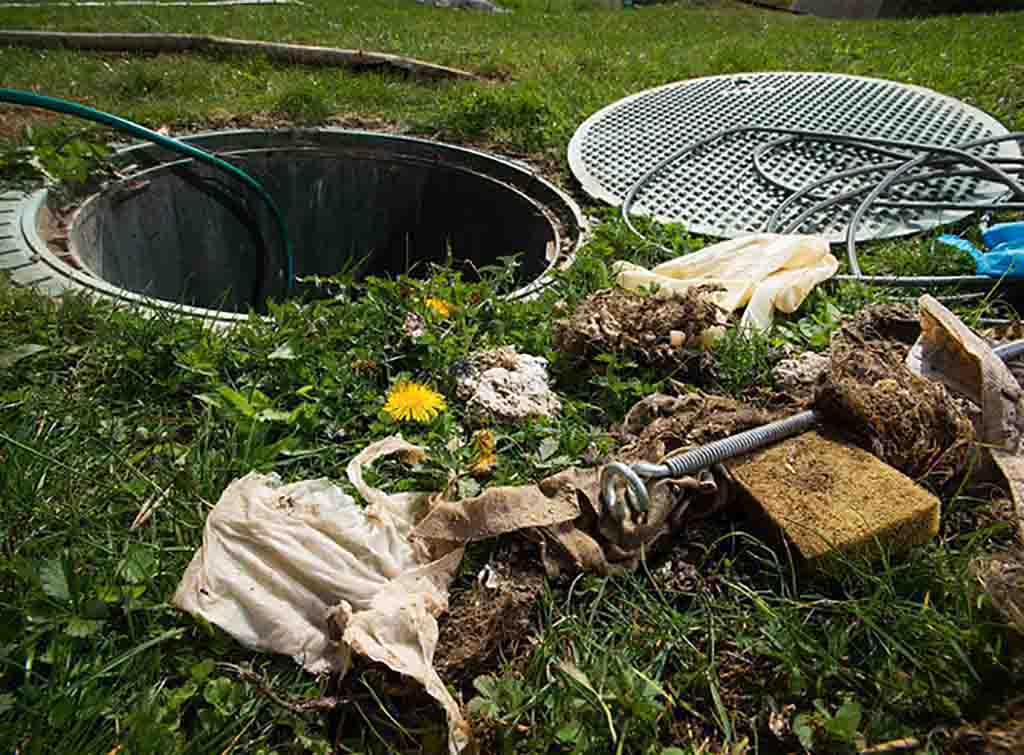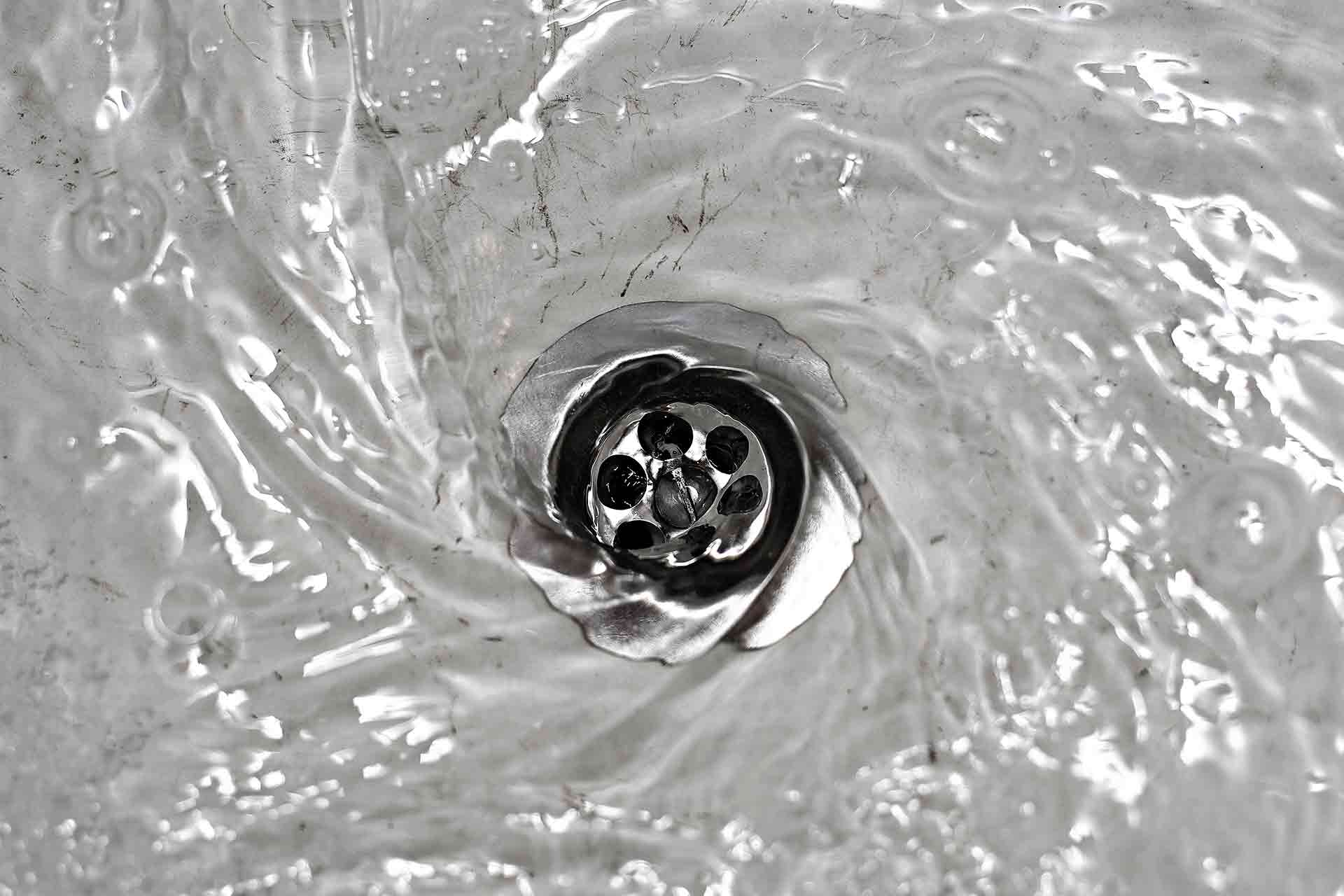Blog>How-To Guides>How to clean drains
Last updated: 16 August 2024
How to clean drains
Regular cleaning and maintenance can help to prevent your drains from getting blocked. Here, we’ll show you how to clean your drains.
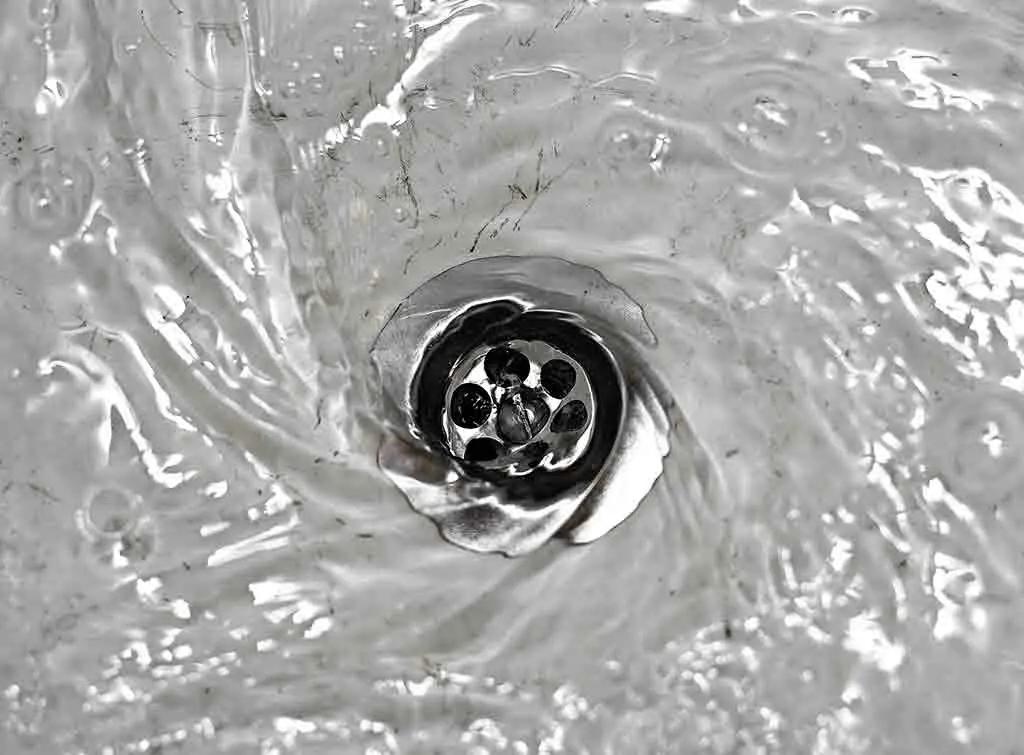
Drains around your home can easily get blocked by everything from soap scum to dirt, hair to cooking oil. But it doesn’t have to be this way!
In this guide, we’ll show you how to clean your drains so you can prevent blockages from happening. Plus, we’ll show you how to clear a clogged drain – whether the issue is with a sink, shower or drain pipe.
How to clean drains
Instead of waiting until your drains are clogged or smelly, it’s best to spend a little time maintaining them every week.
A few minutes here and there can make all the difference in keeping your drains in good condition and avoiding emergency drain cleaning jobs.
1. Check your drains
Regularly check your drains to make sure they’re flowing properly.
Some drains will need to be checked more often than others. For instance, your bathroom sink, shower and bathtub can all quickly get clogged with soap scum, dirt, hair and toothpaste.
Common causes of blocked drains
Discover the various causes of blocked drains and how to fix this common household problem.
2. Clean your drains with boiling water
You can help keep your drains in good condition by regularly pouring boiling water down them. We recommend doing this once a week.
Boiling water is a natural cleaner that can reduce buildup of fat, oils, and grease. But be careful not to scold yourself!
3. Clear bathroom drains
Bathroom drains can quickly accumulate hair and gunk.
That’s why it can be worth removing hair from your sink and shower drains around once a week, before they cause a blockage.
A wire coat hanger can do the trick – straighten it out as much as possible and bend one end into a hook. Push the bent end through the drain and fish out as much as possible.
4. Clean pop-up plugs
If your bathroom sink or tub has a pop-up plug, make sure to clean it as part of your regular bathroom cleaning routine. Debris and hair can get stuck to it and contribute to blockages.
Lift the plug out of the drain, remove any debris, and scrub it. Then, rinse it and replace it.
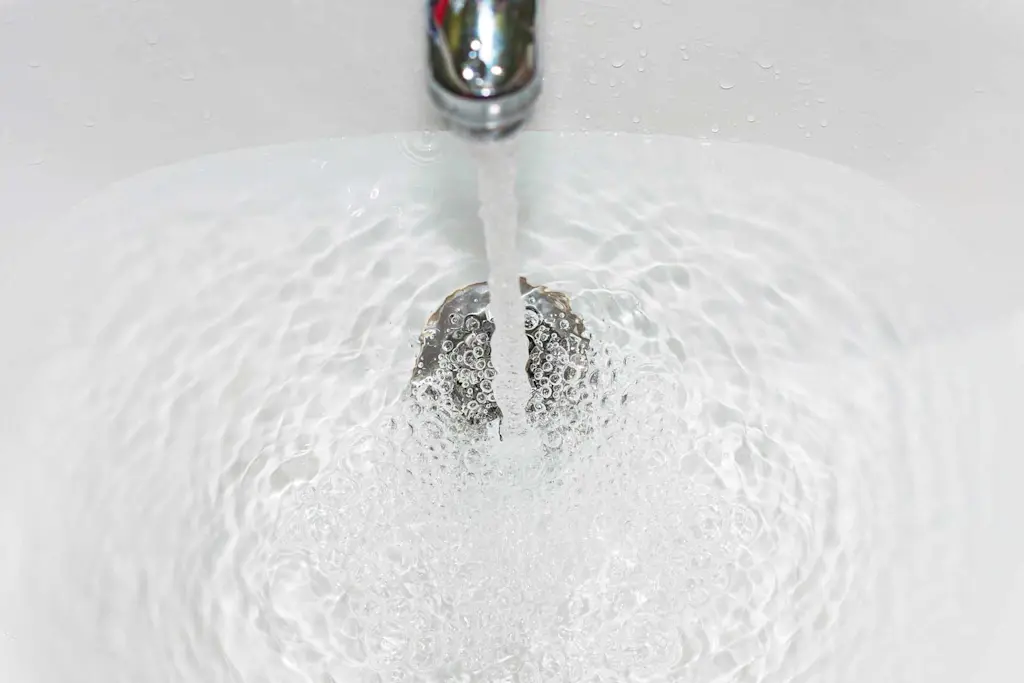
How to clear a clogged drain
If your drains have become clogged, it’s important to clear them as soon as possible before the issue becomes worse.
A few common ways to unblock clogged drains include:
Boiling water
Drain unblocker
Baking soda and vinegar
Manually unblocking
Plunger
Biological unblocker
Drain snake
Read on to find out some of the best ways to clean various drains around the home.
For best results, we recommend hiring a plumber.
Enter your postcode below to find a trusted plumber near you.
See the tradespeople we've checked and recommend for your job
How to clean a shower drain
One of the most common causes of shower or bath drain blockages is hair – especially if it’s long.
You may also find that toiletries clump together and create a blockage.
Either way, you don’t want to be standing in a puddle of water that won’t drain each morning. Here’s how to clean a shower drain.
Remove any hair that’s gathered around the entrance to the drain
Use a wire coat hanger to fish out as much gunk and hair as possible
Mix around one cup of bicarbonate of soda with one cup of vinegar
Pour the mixture down the drain
Wait for around half an hour
Pour boiling water down the drain
How to clean a bathroom sink drain
Bathroom sinks can easily become blocked thanks to toothpaste, shaving foam and toiletries.
A great method for unblocking a sink drain is to pour boiling water down it.
If this doesn’t work:
Mix around one cup of bicarbonate of soda with one cup of vinegar
Pour the mixture down the drain
Wait for around half an hour
Pour boiling water down the drain
How to clean a kitchen sink drain
Kitchen sink drains are another common victim of clogs and blockages, thanks to food waste, cooking fat, and oil.
Like a bathroom sink, boiling water can be a great first port of call.
But again, if this doesn’t work, you could try a mixture of bicarbonate of soda and vinegar. You’ll need one cup of each. Pour the mixture down the drain and wait for around half an hour before following up with boiling water.
How to clean drain pipes
Outside drains can often get blocked by leaves, soil, sand and even tree roots – as well as food waste, fat and oil from your kitchen sink.
There are several steps you can take to clean a blocked drain pipe.
However, first, check whether it’s your responsibility – if it’s a shared drain, it may not be.
Bear in mind also that any bigger clogs or more complex jobs will require the help of a professional.
Use a screwdriver to remove any drain covering
Put on long-sleeved gloves, goggles and a face mask
Reach into the drain to search for any blockages
Remove any debris or blockages within reach and place them in a bucket or bin bag
This may be enough to get your drain moving again. But if clearing by hand doesn’t work, it’s time to use a drain snake, also known as a drain rod.
Insert one rod down the drain and into the pipe below
Continue to connect more rods until you find a blockage
Once you feel the blockage, use some pressure to twist the rod until you break through
Top tip – Always clear up any debris you’ve removed. The last thing you want is to clear one blockage only to have to deal with another in a couple of days time!
CCTV drain survey: Cost breakdown [year]
Experiencing poor drainage can be a real pain for homeowners, and dealing with it means understanding the problem. That’s where CCTV drain surveys can help. In this guide we look at the average CCTV drain survey cost in the UK.
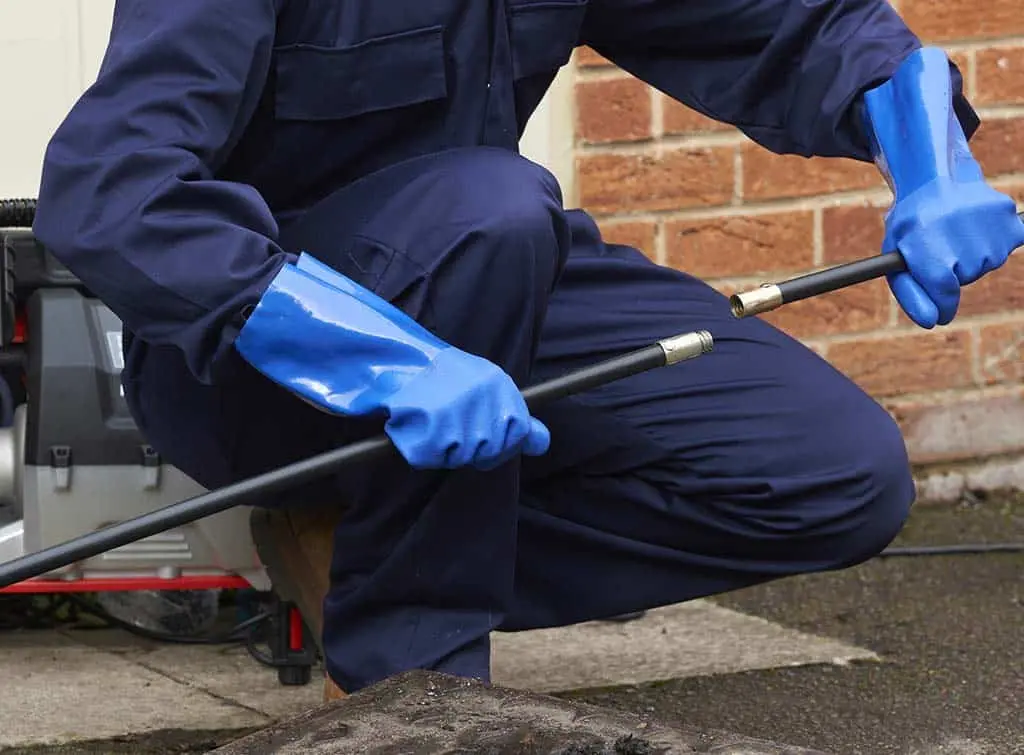
How to clean smelly drains
Struggling with smelly drains? Here are some tips you can try.
Boiling water
Boiling water can be a good place to start.
Boil a kettle of water and slowly pour half of it down your smelly drain
Wait a few minutes and then pour cold water into the drain
Finish by pouring in the rest of the boiling water
Clean out the P-trap
If the smell is coming from a sink, it’s worth cleaning out the P-trap.
Using gloves, remove the trap from under your sink and pour out any debris and water. Then, give it a rinse.
Baking soda
Let the hot tap run for a few seconds, making sure the water is hot.
Then, pour one cup of baking soda followed by two cups of hot vinegar down the drain. Wait for around an hour before rinsing with hot water.
Clean out your dishwasher or washing machine filter
If you’re struggling with a smelly kitchen sink drain when your dishwasher or washing machine is running, the issue could be due to bacteria building up in your appliance’s filter.
This tends to happen if the filter gets blocked – for instance, with detergent or food residue.
Clean out the filter and remove any residue in your dishwasher and washing machine.
If the smell keeps coming back, don’t ignore it. Instead, call a professional, as it could be a sign of a more stubborn blockage, plumbing error or even a collapsed drain.
How to clear a stubborn clog
If you’ve followed the steps above and you’re still struggling to clear your clogged drain, don’t panic.
You’re likely dealing with a more stubborn blockage that will need a professional’s help.
The cost to have your drain unblocked by a professional will depend on the size of the blockage and the method used. However, the average drain unblocking cost using rodding is around £85.
Enter your postcode below to find a trusted plumber who can clear your drain quickly and effectively.
See the tradespeople we've checked and recommend for your job
How to keep drains clean
As we all know, prevention is better than cure.
Here’s how to make sure your drains stay clean and clear of blockages.
Don’t pour fat down the kitchen sink drain
Never pour excess fat from your cooking down the kitchen sink. It can congeal when it cools to create blockages.
Instead, wait until it’s cooled down and get rid of it in your food waste bin (as long as your local authority accepts this kind of food waste).
Brush your hair before a bath or shower
Rather than jumping straight into the bath or shower, take a second to brush your hair first.
This way, you can remove most loose hairs before they end up down the plughole.
Wash your pets outside
Pets shed even more hair than we do, especially when they’re moulting. So, try to avoid washing your cat, dog or even rabbit in the bath.
If you can’t get around it, we’d recommend covering the drain in your bath with a cloth to catch any stray hairs before they head down the plug hole.
Watch what you flush
Be careful what you pour down your drains – food waste, ash, bits of plastic, and harsh chemicals can all contribute to clogs and blockages.
Equally, flushing the wrong things down the toilet can lead to clogs in your outdoor drains. Never flush sanitary products, nappies, baby wipes, or cotton wool, and be wary of excess toilet paper, too!
Best way to clean drains: key takeaways
Prevention is better than cure
Pour boiling water down your drains once a week to keep them healthy
Remove hair and gunk from shower and sink drains once a month
Watch what you pour or flush
Deal with any clogs quickly
If in doubt, call a professional!
See the tradespeople we've checked and recommend for your job
FAQs
What is the best thing to clean your drains with?
Boiling water is the best solution for regular drain cleaning. Pour it down your drains roughly once a week to keep them in top condition.
How to clear drains in the UK?
There are lots of ways you can clear drains in the UK, including:
Boiling water
Drain unblocker
Baking soda and vinegar
Manually unblocking
Plunger
Biological unblocker
Drain snake
What is the best thing for unblocking drains?
We’d always suggest starting with the simplest fixes first. One of the best and easiest solutions is to mix one cup of bicarbonate of soda with one cup of vinegar and pour the mixture down the drain.
After half an hour, follow up with boiling water.
Can you leave baking soda and vinegar in the drain overnight?
Yes, you can leave baking soda and vinegar in the drain overnight if you’re dealing with a bad clog and it’s absolutely necessary. This can give the mixture more time to break down the clog.
However, it’s worth remembering that you shouldn’t leave baking soda and vinegar in the drain any longer than necessary. This is because they can damage old pipes and rubber seals.
What trade can unblock drains?
A plumber or drain clearance expert near you will be the best trade to unblock your drains.
They’ll have the tools, knowledge, and experience needed to find the root of the issue and find a long-term fix.
See the tradespeople we've checked and recommend for your job
More How-To Guides
See the tradespeople we've checked and recommend for your job
